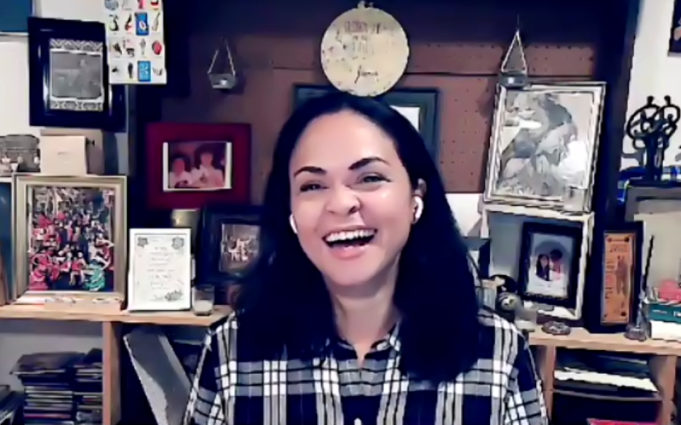Tony-Award-winner Karen Olivo tackled a variety of topics, including how the COVID-19 pandemic has impacted her career and live theater, in a virtual chat sponsored by the Madison College Performing Arts on Nov. 18.
Olivo shared information about her training and experience and how she is adapting to life during the pandemic with Madison College theater students. She received the Tony Award for Best Featured Actress in a Musical for her performance as Anita in the revival of “West Side Story” in 2009 and played Angelica Schuyler in the Chicago production of “Hamilton.” Last year, she portrayed Satine in the stage adaptation of Moulin Rouge on Broadway which earned her a nomination for the 2020 Tony Award for Best Actress in a Musical during the 2019-20 season.
“I will not be participating in the Tony Awards because of the state of COVID in the state of Wisconsin,” the actor said from her home in Madison.
The 74th Annual Tony Awards would have taken place on June 7 at Radio City Music Hall in New York City; however, the ceremony was postponed indefinitely due to the COVID-19 pandemic. In late August, it was announced that a virtual ceremony would take place this year.
“The best part has happened already. Our show has been nominated and recognized for the work that it did and that’s good enough,” Olivo said.
In the wake of the pandemic, Olivo has also worked to bring accountability and economic transparency to the live theatre industry. Olivo and Eden Espinosa (Elphaba, “Wicked”) founded Artist for Economic Transparency (AFET) in June after incidents of racial injustice and after discovering theatrical producer James Nederlander donated to President Donald J. Trump’s reelection campaign.
“We can’t afford to not be activists anymore,” Olivo said.
They encourage others within the industry or interested in live theatre to find a way to be active in the industry, not just in a public way but in a conversation. This includes educating actors, crew, and audiences about the economic structures of the industry uphold systemic discrimination against historically marginalized communities.
“There’s an entire subset of our population that would never be able to afford to go to a Broadway show,” she said.
Olivo also discussed stereotypes within the theatre industry such as being “too fat” or “too skinny” for particular roles or the pressure to fit a particular mold. She would like to see more productions feature Black, Indigenous People of Color (BIPOC) talent and those with diverse abilities.
“I think there was a lot of pressure on me to be a typical Latina firecracker and someone said to me you’re just okay the way you are,” they said.
Olivo said audiences are tired of seeing the same stories. She hopes to find long-term solutions to build a better Broadway.
“I would rely on people who are in places of power and really looking inwards and know that things can be different.”










